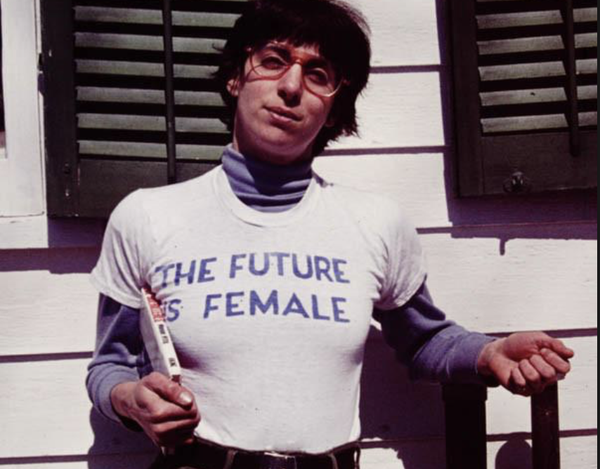As many can relate, I'm more than a little tired of watching various people on social media argue about gun control. There seems to be a continuous cycle of a tragic shooting, debates, "thoughts and prayers", and then no action or improvement that does any sort of justice to the victims' losses.
It is especially disheartening to witness people who are simply repeating arguments that they have heard only from those who share their opinions. Many seem to be caught in an echo chamber of different points that they see as inarguably correct because they read about it once and it aligned with their existing beliefs. What makes it worse is that these people also do this without considering the facts or comparing the U.S. to other countries.
It isn't about liberals or conservatives or whatever political agenda you subscribe to. It's about the fact that people are needlessly dying and evidently, no one in our government will act to prevent that from happening.
It seems that the United States is the only developed country which does not change its laws in response to a tragedy. We are so far behind as a country even while declaring that we are the greatest. It would serve us well to look at the examples of other developed countries.
I've paraphrased each country's gun laws below just to show what a response to these tragedies should look like. I encourage anyone reading to read the article in full. All information is based on: "How do U.S. gun laws compare to other countries?" on pbs.org.
Australia
In 1996, the Port Arthur massacre became a turning point in the country's modern gun control laws; a man killed thirty-five people with a semiautomatic rifle. This was the worst mass shooting in Australia's history and less than two weeks after, their government passed the National Firearms Agreement. The NFA prohibited assault rifles instituted a buyback program and mandated registration and licenses (Masters, 2017).
Israel
At age 18, citizens are required to be drafted, go through weapons training, pass a psychological screening, and serve two or three years in the armed forces. After discharge, they fall under strict civilian gun laws which heavily restrict firearms by requiring that the applicant be a citizen or permanent resident, be twenty-one-years-old, speak some Hebrew, and show genuine cause to carry a gun (Masters, 2017).
United Kingdom
In 1987, the Hungerford Massacre occurred west of London; a lone gunman with two semiautomatic rifles killed more than a dozen people before committing suicide. This prompted Britain to enact the Firearms Amendment which expanded the list of banned weapons to include semiautomatic rifles.
Then in 1996, a man armed with four handguns shot sixteen schoolchildren and one adult in Dunblane, Scotland before killing himself. This marked the county's worst mass shooting to date. The event sparked the Snowdrop Petition to enact legislation banning handguns, with some exceptions, and a temporary gun buyback program (Masters, 2017).
Norway
In 2011, right-wing extremist Anders Behring Brevik killed seventy-seven in Oslo and at an island summer camp. Until this point, gun control issues were not a point of conflict in Norway.
Though Norway ranked tenth worldwide in gun ownership, according to the Small Arms Survey, it placed near the bottom in gun homicide rates. (The U.S. rate is roughly sixty-four times higher.) Most Norwegian police, like the British, do not carry firearms.
This could be a point of argument for pro-gun advocates in the U.S. The country had strict gun control regulation, but this clearly did not matter to Brevik. Others argue that Brevik would have been stopped sooner if their Norwegian police were armed (Masters, 2017).
Japan
Japan's gun homicide rate is the lowest in the world at one in ten million. The ownership rate is very low and most guns are illegal. By law, the only guns permitted include those for competitions, for research or industrial purposes, shotguns, and air guns.
Before a citizen could access those weapons though, they must pass a written test, mental test, a thorough background check, and receive formal weapon instruction (Masters, 2017).
And then there's the United States...
The United States, with less than 5 percent of the world’s population, has about 35–50 percent of the world’s civilian-owned guns, according to a report by the Switzerland-based Small Arms Survey. It ranks number one in firearms per capita.The United States also has the highest homicide-by-firearm rate among the world’s most developed nations.
It should be noted that none of these countries have total bans on guns. It should also be noted that many of these countries have access to the same videogames, movies, and music that we do in the U.S.
These countries didn't let excuses, blame-deflecting, or political parties stifle necessary change; they responded to tragedies with regulations, education, or both to significantly reduce homicide rates at the time and for the future.
If anyone thinks that all guns can be banned, they are unfortunately wrong. Yet, if anyone thinks that the country does not change, does not need to change, or that such changes have never happened, they are statistically and historically wrong.
It physically hurts to watch high school-age kids have to deal with the terrible and too-early deaths of their classmates and friends whose government failed them. If anyone thinks that nothing needs to change, then they haven't been paying attention.



















